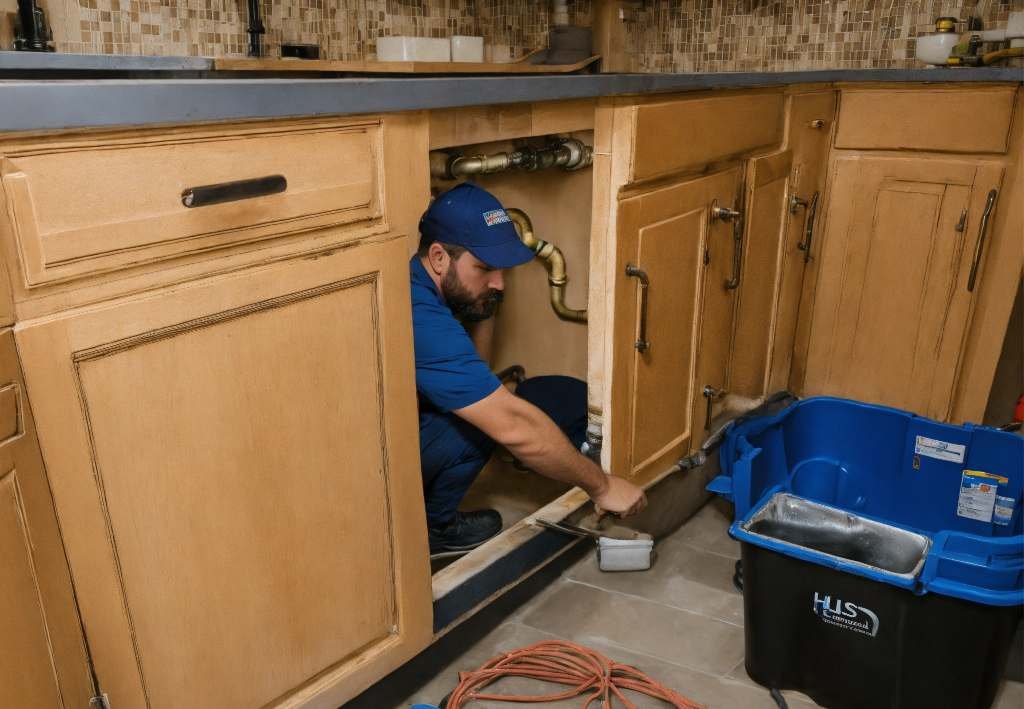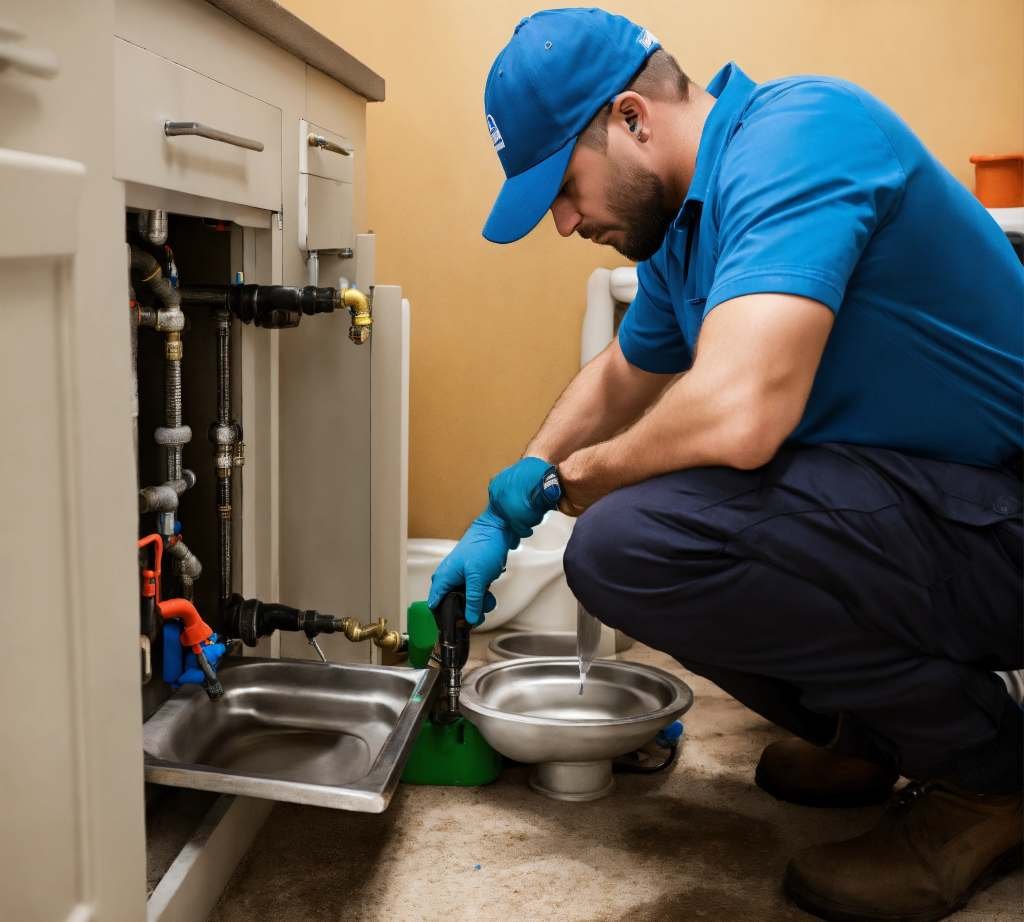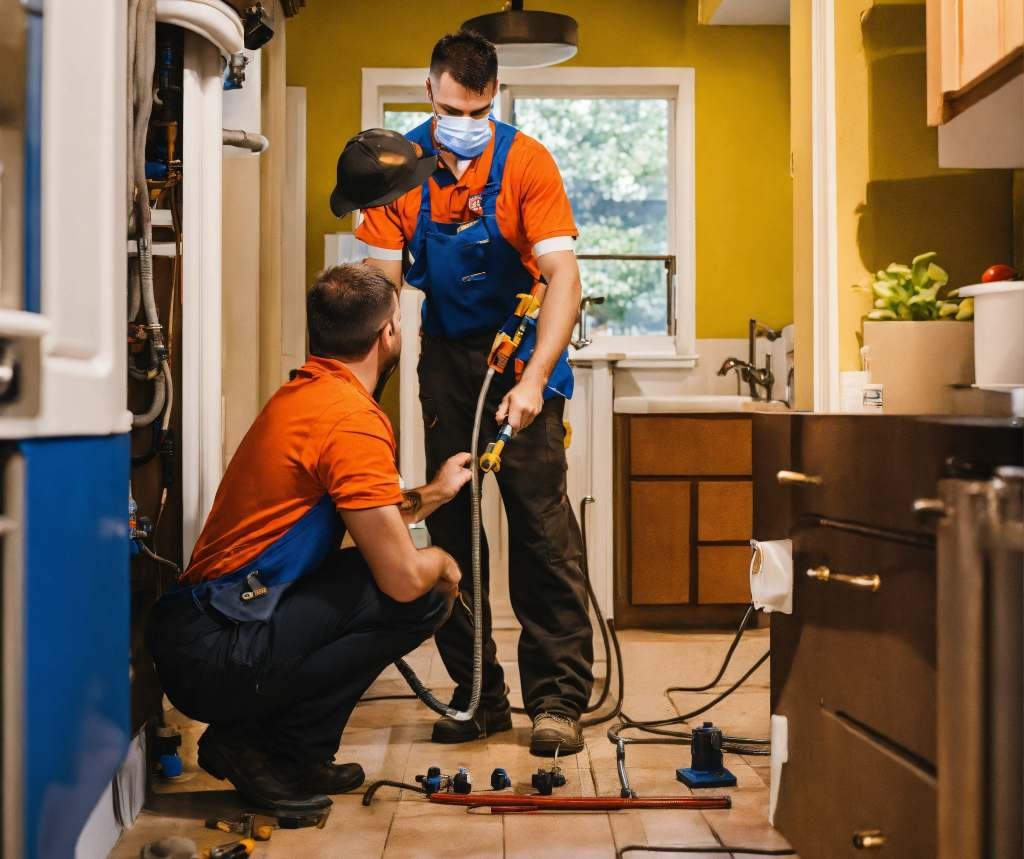The day-to-day routine of a plumber will vary depending on the type of work they specialize in and the current projects they are working on. Repairing pipes, fittings, and assembling pipe sections are some tasks that plumbers perform on any given day. Plumbing companies may have their set schedule for employees, while self-employed plumbers may have a flexible daily routine. Here are some factors that determine a typical day of work for a plumber.
Type of Work

The type of plumbing work that needs to be done will significantly influence the daily schedule of a plumbing technician. Plumbing technicians specializing in residential repairs have a different routine than those working on commercial projects. The size and nature of the project also play a role in determining how much time is spent on a job.
Emergencies
Burst pipes, clogged drains, and other urgent issues necessitate immediate attention from a plumber. These emergencies require no prior scheduling and can significantly disrupt a plumber’s daily routine. When such emergencies arise, plumbers need to prioritize and rearrange their schedules to address the immediate needs of their clients. The way they handle emergencies showcases the ability to adapt to changing situations.
Company Size and Structure
The size and structure of a plumbing company also impact the daily routine of its employees. Larger companies with more employees may have a specific schedule for their plumbers, with dates and time slots designated for each project. This allows for better organization and coordination of tasks, confirming that all work is completed on time. Many smaller companies or self-employed technicians will have a more flexible schedule since they are solely responsible for managing their workload and appointments.
Location
The plumbing company’s location also affects its plumbers’ daily routine. Plumbers working in urban areas have a different routine than those working in rural areas. In rural areas, plumbing experts often have to travel longer distances between projects, which can add extra time to their daily routine. Plumbing technicians in urban areas may have a more straightforward commute and spend less time traveling between jobs.
Roles of a Plumber in a Typical Day of Work

A plumber’s standard workday depends on the workload and emergencies that may arise. Their day typically begins with checking their schedule for upcoming appointments or projects. In larger companies, a plumbing professional might employ a scheduler who organizes their daily tasks and assigns them to different locations. Here are some of the roles a plumber may have in a typical day of work:
Reviewing Blueprints and Building Codes
Blueprints are architectural drawings that provide detailed layouts of a building’s plumbing system. Plumbing experts use the blueprint to identify the location and connections of the property’s pipes, valves, and fixtures. Building codes specify the standards and regulations that pertain to plumbing systems in various regions. A plumbing expert must adhere to these codes when installing or repairing systems to enhance safe and efficient operations.
Replacing Defective Washers and Fixtures
Washers are seals in faucets and toilets that can wear out, causing leaks. Plumbing companies use tools such as wrenches and pliers to remove old washers and install new ones. They also handle the replacement of defective fixtures, such as faucets, sinks, and toilets. A plumber’s knowledge of different brands and models enables them to recommend reliable products that suit the client’s needs. The proper installation of these components promotes their longevity.
Servicing Water Heaters
Water heaters supply hot water to various appliances in a property. A drainage technician conducts regular maintenance checks on these systems to ensure they function correctly and efficiently. If a water heater needs repair, the plumber has the necessary skills to troubleshoot issues and replace parts. They may also advise clients on energy-efficient options for water heating systems, such as tankless or solar-powered heaters, to reduce utility costs. A typical plumbing technician can install and maintain water softeners and filtration systems to improve water quality in a property.
Hire Professional Plumbers for Quality Services

Plumbing services help maintain safe and comfortable living conditions on any property. Depending on the client’s needs, these services can range from simple repairs to complex installations. A typical working day can involve unclogging drains, fixing leaky pipes, and installing new fixtures. Professional plumbers use cameras and hydro jets to inspect pipes and remove blockages. They are trained to handle emergencies like burst pipes or overflowing toilets efficiently. Contact a professional plumber for any plumbing needs and promote a property’s functionality and safety.
Additional Points
- “Tools of the Trade“: You could have a section that highlights the essential tools a plumber uses daily, like wrenches, pliers, pipe cutters, and drain snakes. Explaining how these tools are used can give readers a better understanding of a plumber’s work.
- “Safety Precautions“: Plumbing can be a hazardous job, with risks like scalding, electrocution, and exposure to harmful chemicals. Adding a section on the safety measures plumbers take, such as wearing protective gear and following proper procedures, can emphasize the importance of professional expertise.
Concluding Lines
A plumber’s typical day is dynamic and varied, influenced by factors such as the type of work, emergencies, company size, location, and specific professional roles. Whether addressing emergencies, installing fixtures, or adhering to building codes, plumbers play a crucial role in maintaining the functionality and safety of residential and commercial properties. Their expertise ensures that plumbing systems operate smoothly, promoting a comfortable and hygienic environment for occupants. For reliable plumbing services, entrust your needs to professional plumbers who prioritize quality artistry and customer satisfaction.
